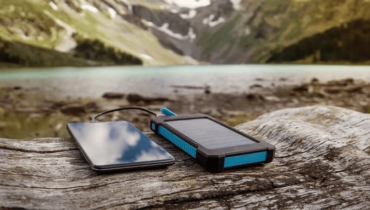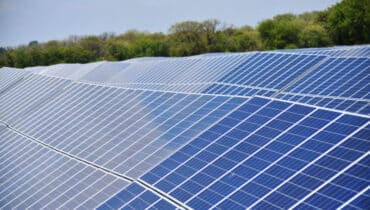Table of Contents
In today’s environmentally conscious world, the shift towards renewable energy sources has gained significant momentum. Solar energy, in particular, has emerged as a powerful and accessible solution for homeowners seeking to reduce their carbon footprint and energy costs.
A 1 kW solar system represents an excellent entry point into the world of solar power, offering a practical and environmentally friendly way to harness the energy of the sun. In this comprehensive guide, we will walk you through the intricate process of designing a 1 kW solar system for your home, following our content guidelines to ensure that the information is not only reliable but also genuinely helpful and people-focused.
What is a 1 kW Solar System?
Before delving into the design process, let’s start with the basics. A 1 kW (kilowatt) solar system has the capacity to generate 1,000 watts of electricity per hour under optimal conditions. However, it’s important to note that the actual output may vary depending on factors like location, weather, and the efficiency of your solar panels.
Key Considerations for Designing a 1 kW Solar System
Designing an efficient 1 kW solar system requires careful planning and consideration of several factors. Let’s explore these key considerations.
Location Assessment
The location of your solar installation plays a significant role in its efficiency. Factors like the amount of sunlight your area receives and the angle of your roof should be evaluated to optimize energy production.
Solar Panel Selection
Choosing the right solar panels is crucial. Look for panels that offer a balance between efficiency and affordability. High-efficiency panels may be costlier but can yield more electricity over time.
Inverter Selection
Inverters convert the direct current (DC) generated by solar panels into alternating current (AC) used in your home. Opt for a quality inverter that matches the capacity of your solar array.
Battery Storage (Optional)
Consider adding battery storage to your system for energy storage and backup during cloudy days or power outages.
Local Regulations and Permits
Check local regulations and obtain the necessary permits for your solar installation to ensure it complies with safety and environmental standards.
Calculating the Number of Solar Panels
To determine how many solar panels you need for a 1 kW system, you’ll need to consider the wattage and efficiency of your chosen panels. A typical 1 kW solar system may require between 3 to 5 solar panels, each with a wattage rating of around 200-350 watts.
Installation Process
Once you have all the necessary components, it’s time to install your 1 kW solar system. Hiring a professional installer is recommended to ensure safety and optimal performance.
Monitoring and Maintenance
Regular monitoring and maintenance are essential to keep your solar system operating efficiently. Check for dirt, debris, or shading on your panels, and clean them as needed.
Benefits of a 1 kW Solar System
Investing in a 1 kW solar system can have a range of benefits that go beyond just saving on your energy bills. Whether you’re looking to reduce your carbon footprint, increase your energy independence, or enjoy long-term cost savings, here are some of the key advantages of a 1 kW solar system:
1. Environmental Sustainability: One of the most significant benefits of a 1 kW solar system is its positive impact on the environment. By harnessing clean, renewable solar energy, you reduce your reliance on fossil fuels, thereby lowering greenhouse gas emissions. This contributes to a healthier planet and helps combat climate change.
2. Lower Energy Bills: A 1 kW solar system generates electricity from sunlight, reducing your dependence on electricity from the grid. As a result, you’ll notice a decrease in your monthly energy bills. Over time, the energy savings can be substantial, providing a significant return on your initial investment.
3. Energy Independence: Solar panels provide a degree of energy independence. You generate your electricity, which means you’re less affected by fluctuations in energy prices and potential power outages. This independence offers peace of mind and security in times of need.
4. Minimal Maintenance: Solar panels are designed to be low-maintenance. They typically require minimal upkeep, with occasional cleaning and inspections to ensure optimal performance. This means you can enjoy the benefits of solar energy without the hassle of frequent maintenance.
5. Increased Property Value: Installing a 1 kW solar system can enhance the value of your property. Solar panels are seen as a valuable asset, and homes with solar installations often sell at higher prices. It’s a smart investment that can pay off when you decide to sell your home.
6. Government Incentives and Rebates:Many governments and local authorities offer incentives, tax credits, and rebates to encourage the adoption of solar energy. These financial incentives can significantly reduce the upfront cost of installing a 1 kW solar system, making it even more affordable.
7. Net Metering: In areas with net metering policies, excess electricity generated by your 1 kW solar system can be fed back into the grid. You receive credits for this surplus energy, further reducing your energy bills and potentially earning you money.
8. Long-Term Investment: A 1 kW solar system is a long-term investment that can provide benefits for decades. Solar panels typically have warranties that last 25 years or more, and their lifespan often exceeds this duration. This long-term perspective ensures a stable source of clean energy for years to come.
9. Positive Impact on Communities: By adopting solar energy, you contribute to the growth of renewable energy sources in your community. This can inspire others to follow suit and lead to a collective reduction in carbon emissions.
FAQs
How much does a 1 kW solar system cost?
The cost of a 1 kW solar system can vary based on factors such as the quality of the panels, installation costs, and location. On average, you can expect to invest between $2,000 to $5,000 for a basic setup before incentives or rebates.
How many hours of sunlight do I need for a 1 kW solar system to be effective?
The effectiveness of your solar system depends on your location and the amount of sunlight it receives. On average, a 1 kW solar system can generate about 4-5 kWh per day, assuming about 5 hours of direct sunlight. However, this can vary significantly by region.
Is a 1 kW solar system enough to power my entire home?
Whether a 1 kW system can power your entire home depends on your energy consumption habits and your location. In some cases, it may be sufficient to cover a portion of your electricity needs, while in others, it might not be enough for the entire household.
Do I need to have battery storage with a 1 kW solar system?
Battery storage is optional but can be beneficial. It allows you to store excess energy generated during the day for use during cloudy days or at night. Adding a battery can enhance your system’s reliability and provide backup power.
What is the payback period for a 1 kW solar system?
The payback period for your 1 kW solar system depends on factors like your energy consumption, local electricity rates, and the cost of your installation. On average, homeowners can expect a payback period of around 5 to 10 years through energy savings and potential incentives.
Conclusion
Designing a 1 kW solar system is not just about harnessing the sun’s energy; it’s about taking an active step towards a more sustainable and environmentally conscious future. By embracing solar power, you can reduce your reliance on fossil fuels, lower your energy bills, and contribute to a cleaner planet.
This comprehensive guide has equipped you with the knowledge and insights needed to embark on your solar journey. From assessing your location and selecting the right solar panels to understanding the intricacies of inverters and maintenance, you now have the tools to make informed decisions and design a 1 kW solar system that suits your unique needs.

